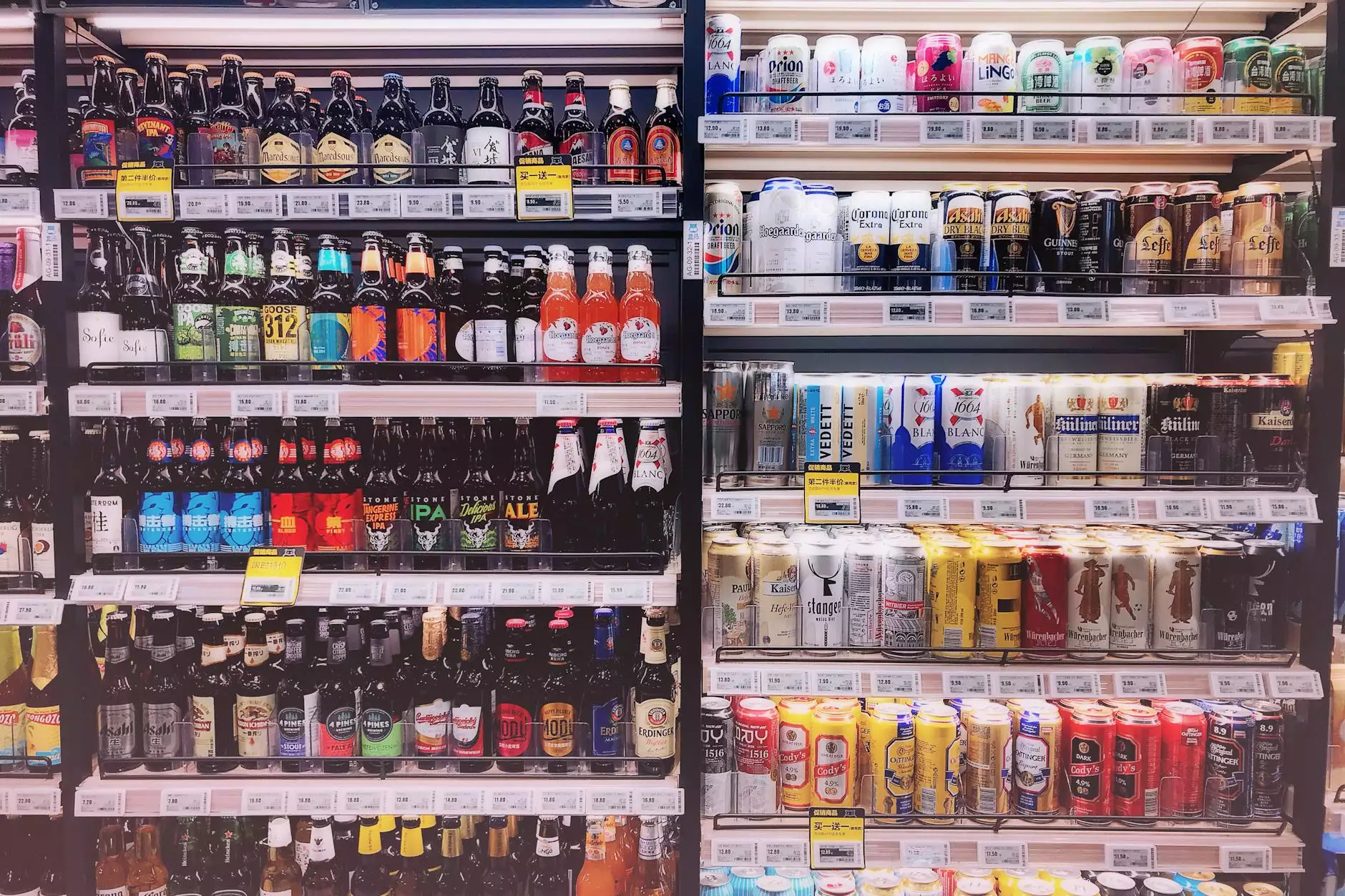Understanding the Role of Refrigeration Equipment Manufacturers

Refrigeration equipment manufacturers are vital for ensuring quality and safety across numerous industries that rely on temperature-controlled environments. From food preservation to medical storage, these manufacturers craft essential tools that keep our world functioning smoothly. In this extensive guide, we will delve into the significance of refrigeration equipment manufacturers, providing insights into their importance, the types of equipment they produce, industry trends, and the future of refrigeration technology.
The Importance of Refrigeration Equipment in Various Industries
The role of refrigeration in modern society cannot be overstated. Here are some industries that heavily depend on refrigeration equipment:
- Food and Beverage: Whether it's a local grocery store or a large food processing plant, refrigeration is essential for maintaining the freshness and safety of perishable items.
- Pharmaceuticals: Many medications require strict temperature controls to ensure efficacy. Refrigeration equipment manufacturers produce specialized units designed for this purpose.
- Hospitality: Restaurants and hotels use refrigeration units to store food products and maintain comfortable environments for guests.
- Supermarkets: Large retailers need advanced refrigeration solutions to manage vast inventories of perishable goods efficiently.
Types of Refrigeration Equipment
Understanding the different types of equipment produced by refrigeration equipment manufacturers is crucial for selecting the right solution for your needs. Here are some common categories:
1. Commercial Refrigerators
These are essential for restaurants, grocery stores, and other businesses that require large-capacity units for storing perishable goods. They come in various forms, including:
- Reach-in Refrigerators: Used for easy access to ingredients.
- Walk-in Coolers: Ideal for bulk storage of food and beverages.
- Display Refrigerators: Showcase products while keeping them at safe temperatures.
2. Industrial Refrigeration Systems
These systems are designed for larger operations, such as warehouses or manufacturing facilities. They are engineered for high efficiency and include:
- Chillers: Used to cool production processes or large volumes of water.
- Freezers: Maintain low temperatures for long-term storage.
- Refrigerated Transport Vehicles: Ensure perishable goods remain fresh during transportation.
3. Specialized Refrigeration Equipment
This includes units designed for specific industries, such as:
- Medical Refrigerators: Maintain precise temperatures for vaccines and other sensitive materials.
- Ice Machines: Produce ice for various applications, from food service to healthcare.
Leading Manufacturers in the Refrigeration Industry
The market is home to numerous refrigeration equipment manufacturers, each contributing unique technologies and solutions. Some notable names include:
- Carrier: A global leader in HVAC and refrigeration, known for innovative solutions.
- Trane: Offers energy-efficient products and comprehensive service.
- German company Liebherr: Renowned for high-quality commercial refrigeration units.
- True Manufacturing: An American company famous for its sturdy and efficient refrigeration systems.
Technological Innovations in Refrigeration Equipment
As the demand for energy efficiency and environmental sustainability grows, refrigeration equipment manufacturers are innovating at an unprecedented pace. Here are several key advancements:
1. Energy-Efficient Systems
Modern refrigeration equipment is designed to minimize energy consumption without compromising performance. Manufacturers are employing:
- Variable Speed Compressors: These adjust capacity according to the load and save energy.
- Advanced Insulation Materials: Improved insulation reduces energy loss, keeping operating costs down.
2. Eco-Friendly Refrigerants
With the phase-out of harmful refrigerants like R-22, manufacturers are switching to more environmentally friendly options, such as:
- Hydrocarbons: Naturally sourced and have lower global warming potential.
- CO2 Systems: Work exceptionally well in commercial refrigeration, providing an eco-friendly alternative.
3. Smart Refrigeration Solutions
Advancements in technology have lead to the emergence of smart refrigeration systems that incorporate:
- IoT Connectivity: Enables remote monitoring and management of refrigeration units.
- Predictive Maintenance: Uses data analytics to predict failures before they happen, minimizing downtime.
Addressing Challenges in the Refrigeration Industry
Despite the advancements, refrigeration equipment manufacturers face several challenges:
1. Regulatory Compliance
Strict regulations concerning ecological impacts and energy efficiency require manufacturers to stay ahead of compliance measures.
2. Supply Chain Disruptions
As seen during the COVID-19 pandemic, disruptions can delay production and affect availability. Manufacturers are now focusing on strengthening supply chains to mitigate future risks.
3. Increasing Demand for Quality
Consumer awareness of product quality and safety is rising. The stakes are higher for manufacturers to deliver reliable and compliant refrigeration solutions.
The Future of Refrigeration Equipment Manufacturing
The future looks promising for refrigeration equipment manufacturers. Key trends shaping the industry include:
1. Sustainability Initiatives
As companies across all sectors prioritize sustainability, the demand for eco-friendly refrigeration solutions will continue to grow.
2. Continued Innovation
Investments in research and development will lead to more energy-efficient technologies and enhanced refrigeration systems.
3. Expanding Markets
Emerging economies are experiencing rapid growth in sectors requiring refrigeration. Manufacturers must adapt to new market demands and cultural preferences.
Conclusion
In conclusion, refrigeration equipment manufacturers are key players in the cold chain logistics and supply industry. By producing reliable equipment that is safe and efficient, they support various sectors vital to our everyday lives. As technology continues to evolve and the demand for sustainability remains paramount, the role of these manufacturers will be even more critical to ensuring that our needs are met in an environmentally responsible manner. Collaborating with leading manufacturers like those mentioned can facilitate access to the latest innovations in refrigeration technology, ensuring that your business remains competitive and capable of meeting the needs of your customers.
Staying informed about industry trends, regulatory changes, and technological advancements is essential for making the most of the products and solutions offered by refrigeration equipment manufacturers. Embrace the future of refrigeration and ensure that your operation is equipped for success.









